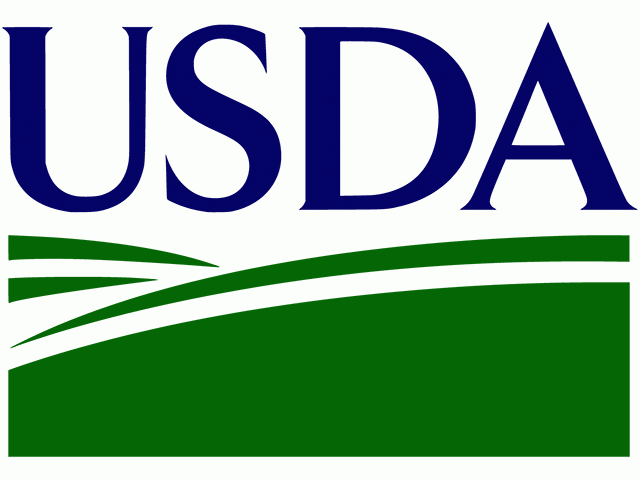USDA Reports Preview
USDA Quarterly Stocks Ready to Put Bows on Corn, Soybean Seasons
USDA's quarterly Grain Stocks report for Sept. 1 will be released Friday, Sept. 30, at 11 a.m. CDT, along with the Small Grains Summary, a report on U.S. wheat, oats and barley production.
Ending stocks of U.S. corn and soybeans are apt to be near USDA's estimates from the September World Agricultural Supply and Demand Estimates (WASDE) report, but a surprise is always possible.
SEPT. 1 GRAIN STOCKS
If all goes well with Friday's quarterly Grain Stocks report from the National Agricultural Statistics Service (NASS), we might not see much, if any, reaction from corn and soybean prices on the board. After all, for the new 2022-23 season, USDA is already estimating the lowest ending U.S. corn stocks in 10 years, the lowest ending U.S. soybean stocks in seven years and the lowest ending U.S. wheat stocks in nine years. It is difficult to imagine Friday's report topping those already-made announcements, but USDA's Grain Stocks reports do have a history of sometimes shocking traders out of their WASDE-induced comas.
CORN
Dow Jones' survey of 17 analysts expects USDA to find 1.497 billion bushels (bb) of corn on hand as of Sept. 1, 2022, up from 1.235 bb the previous year, but a little below USDA's September estimate of 1.525 bb. Corn basis has been stronger than normal all summer long and is the one factor that makes Friday's report interesting to see if corn supplies come in any less than expected. If Dow Jones' survey is correct, the 2021-22 season will finish with the second lowest ending corn stocks in eight years.
P[L1] D[0x0] M[300x250] OOP[F] ADUNIT[] T[]
SOYBEANS
Dow Jones' survey expects USDA to confirm 247 million bushels (mb) of soybeans on hand as of Sept. 1, 2022, a little less than last year's 257 mb of ending stocks and a little more than USDA's September estimate of 240 mb. As with corn, the national basis for soybeans was stronger than normal most of the summer, thanks largely to active crush demand. Unlike corn, U.S. soybean shipments lagged USDA's estimated export pace at the end of the season and may have resulted in a last-minute increase in soybean supplies. If Dow Jones' analysts are correct, a 247 mb total would be the lowest ending soybean stocks in six years.
WHEAT
Unlike corn and soybeans, Sept. 1 wheat stocks are not ending stocks and will tell us how demand went in the first quarter of the new 2022-23 season. Dow Jones' analysts expect USDA to find 1.795 bb of wheat on hand as of Sept. 1, 2022, a little more than last year's 1.774 bb, but also the second lowest Sept. 1 total in 15 years. The more bearish side of the coin is that if the analysts are correct, first quarter wheat demand will have totaled 758 mb, the lowest in four years.
SMALL GRAINS 2022 SUMMARY
The Small Grains 2022 Summary will give us the latest production estimates from NASS for wheat, oats and barley. Dow Jones' survey of 15 analysts provided average estimates of 1.784 bb for all U.S. wheat production, similar to the 1.783 bb posted in the September WASDE report. Winter wheat production is estimated at 1.192 bb, down 7% from last year's 1.277 bb. Other production estimates show hard red winter (HRW) wheat at 573 mb, soft red winter (SRW) wheat at 379 mb, White wheat at 239 mb, other spring wheat at 517 mb and durum at 75 mb.
Of the classes listed, other spring wheat has the most potential for surprise as harvest is just nearing the finish line with 7% of North Dakota's acres left to bring in.
I don't have analyst estimates for oats and barley production, but as a source of reference, U.S. oat production for 2022-23 was estimated at 53 mb in USDA's September WASDE report, up from 40 mb in 2021-22. U.S. barley production for 2022-23 was estimated at 158 mb in the September WASDE report, up from 118 mb in 2021-22.
With investors clearly shaken by last week's rate hike and hawkish comments from the Federal Reserve, I can't guarantee Friday's USDA reports will have much impact on market prices, but I continue to say USDA's efforts to take regular inventory of grain stocks is one of the most valuable services they provide for helping us understand markets, and the reports help protect us from estimates that sometimes go astray in the WASDE reports.
Join us Friday for DTN's 12:30 p.m. CDT webinar as we look over USDA's numbers and discuss what they mean to markets. Register now at: https://ag.dtn.com/…
| QUARTERLY STOCKS (million bushels) | ||||||
| 9/1/22 | Avg | High | Low | June | Sep 2021 | |
| Corn | 1,497 | 1,575 | 1,295 | 4,346 | 1,235 | |
| Soybeans | 247 | 275 | 220 | 971 | 257 | |
| Wheat | 1,795 | 1,950 | 1,663 | 660 | 1,774 | |
| U.S. PRODUCTION (Million Bushels) 2022-23 | ||||||
| 9/30/22 | Avg | High | Low | Aug | 2021 | |
| All Wheat | 1784 | 1,806 | 1,750 | 1,783 | 1,646 | |
| Winter | 1192 | 1,205 | 1,165 | 1,198 | 1,277 | |
| HRW | 573 | 590 | 555 | 576 | 749 | |
| SRW | 379 | 390 | 365 | 381 | 361 | |
| White | 239 | 250 | 225 | 240 | 167 | |
| Spring | 517 | 540 | 503 | 512 | 331 | |
| Durum | 75 | 76 | 71 | 74 | 37 | |
Todd Hultman can be reached at todd.hultman@dtn.com
Follow Todd Hultman on Twitter @ToddHultman1
(c) Copyright 2022 DTN, LLC. All rights reserved.



